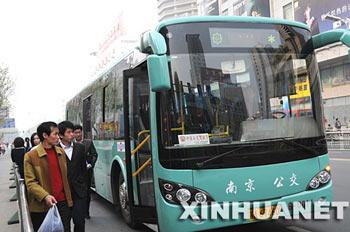China has initiated a programme to promote the sale of green vehicles. The central government will offer cash rebates of up to 600-thousand yuan to buyers of alternative energy passenger cars and buses in 13 major cities. Insiders say the move will help solve the current embarrassing situation in low emission vehicles.

The cash rebates will be offered in 13 major cities, including Beijing and Shanghai, during a trial period. The rebates will include vehicles powered by battery, hybrid technology and fuel cells. The move is aimed to reduce emissions, improve the country's vehicle manufacturing industry and stimulate demand.
The cities involved in the trial will promote these vehicles in the public service sector at first, such as buses and taxis. Vehicle buyers will receive a rebate for around 50-thousand yuan for a small hybrid passenger car. While the rebate for a large fuel cell powered commercial bus will be about 600-thousand yuan.
The government says the rebate system is designed to encourage all auto makers.
Wang Bao'an, director of Dept. of Economic Construction, MOF,says, "we won't designate an auto maker or a car model. We only set standards for the market entry."
China aims to promote the sale of over 60-thousand alternative energy vehicles within four years. Insiders say the rebates for vehicles purchased for the public sector will help boost more development of alternatives to petrol and diesel vehicles.
Wan Gang, Minister of Ministry of Science & Technology, says, "buses have played a crucial role in common people's daily lives. So we want to popularize alternative energy through the exemplary role of buses."
The promotion of alternative energy vehicles in China has been hindered by their high costs. Although these vehicles have had enough technology support, many consumers still can't afford them.
Shou Ziqi, director of Shanghai Association for Science & Technology, says, "the prices of battery powered cars are over two times of traditional ones. While prices of fuel cell powered cars stands at even five times. It's still hard to offset costs completely by saving fuel."
Insiders say the central government's cash rebates will help ease local governments' pressures in promoting such vehicles. But the transition to alternative energy powered vehicles still needs increased investment in related infrastructure development.
(CCTV February 19, 2009)